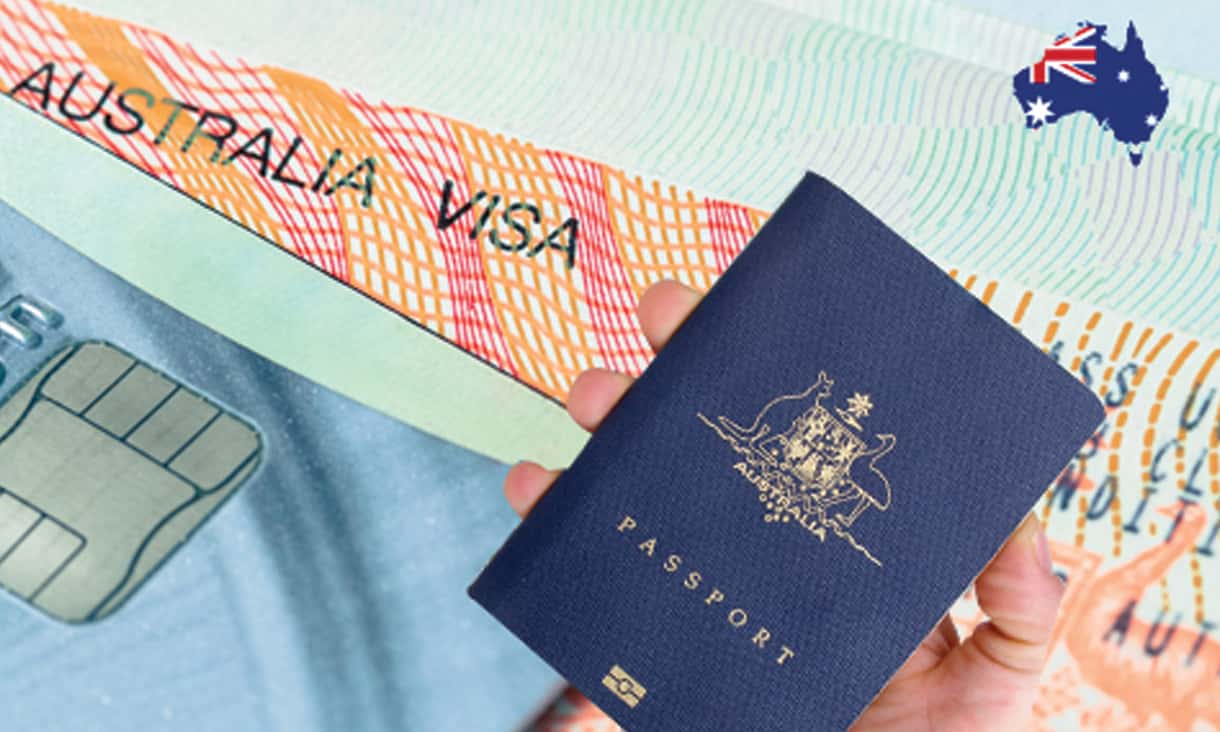Thinking about bringing your family to Australia? An Australian dependent visa could be just what you need. This visa allows family members to join you, making it possible for them to live, work, and study in Australia. In this article, we will discuss the whole process, from eligibility to the application steps, so you can reunite with your loved ones and enjoy the benefits of living together in Australia. Let’s get started!
Australian Dependent Visa
A dependent visa lets family members of someone with a main visa come to Australia. This includes spouses and children who depend on the main visa holder for financial support or care. With a dependent visa, these family members can live and work in Australia. There are different types of dependent visas, such as partner visas, child visas, and parent visas.
Also read Schengen visa fee set to rise from €80 to €90 on June 11
For Student Dependents
If you are coming to Australia to study, you can bring your family members with you. Here’s how you can do it:
-
Including family in your original visa application
- Include your family members’ details on your original Form 157A.
- The main student visa must be valid for at least 12 months.
- Have enough funds and insurance to cover expenses for this period.
-
Applying for family visas after starting your course
- Submit Form 919 (Nomination of student dependents)
- Submit Form 157A (Application for a student visa)
- Provide a letter from your teacher stating:
- Your course name
- Course length and expected completion date
- Confirmation that you are meeting course requirements
- Show proof you can support your dependents financially
- Provide proof of family ties
- Show proof of school enrollment for school-aged children
- Provide proof of health insurance for your dependents
Who Can Apply for Dependent Visas?
- Spouses or partners
- Unmarried children under 18 years old
Also read Jordan Work Visa Process 2024 | Types, Requirements and Application Process
Benefits of an Australian Dependent Visa
There are several advantages to holding a dependent visa in Australia:
-
Family Reunification
This visa allows families to be together, providing emotional support and strengthening family bonds.
-
Educational Access
Dependent visa holders and their children can enroll in Australia’s public schools and universities, gaining access to high-quality education.
-
Work Rights
Generally, dependent visa holders can work in Australia, helping to support the household and gain valuable work experience.
-
Healthcare Benefits
Most dependent visa holders qualify for Medicare, which covers subsidized healthcare services.
-
Community and Social Support
They can engage with a diverse and welcoming community, aiding their adaptation to a new culture.
-
Travel Opportunities
Dependent visa holders can travel in and out of Australia, allowing them to visit their home country or explore other destinations.
-
Pathway to Permanent Residency
Some dependent visas offer a route to permanent residency, providing long-term stability.
-
Access to Social Services
They can benefit from various social services available to Australian residents.
-
Cultural Enrichment
Living in Australia provides exposure to a rich and diverse culture.
-
High Living Standards
Australia is known for its high quality of life, with safe and vibrant cities and beautiful landscapes.
Eligibility Requirements for Australian Dependent Visa
To apply for a dependent visa, you need to meet several criteria:
1. Relationship Requirements
You must be a spouse, child, or dependent parent of an Australian citizen, permanent resident, or eligible New Zealand citizen.
Also read How to Apply for Belgium Student Visa in 2024?
2. Sponsorship Requirements
Your sponsor must be an Australian citizen, a permanent resident, or an eligible New Zealand citizen.
3. Financial Stability
You need to demonstrate sufficient financial resources to cover living expenses in Australia. Your sponsor must show they can support you financially.
4. Health Requirements
You must be in good health. The Department of Home Affairs will conduct medical checks to make sure you do not pose a health risk to the Australian community.
5. Character Requirements
You must have a clean criminal record and provide a police clearance certificate as proof.
Documents Required for Australian Dependent Visa
- Valid passport
- Birth certificate
- National ID card (if needed)
- Proof of financial stability
- Evidence of financial independence of sponsor
- Medical examination certificates
- Proof of health insurance
- Police clearance certificate
- Proof of good character (reference letters, if needed)
- Marriage certificate (for spouse)
- Birth certificates (for children)
- Proof of ongoing relationship
- Proof of school enrollment for school-aged children
- Completed visa application form (Form 157A for student dependents)
- Form 919 (Nomination of student dependents, if applicable)
Also read Scotland Work Visa Jobs by the UK Government – How to Apply?
Steps to Apply for an Australian Dependent Visa
The application process can be detailed and time-consuming. Here’s a step-by-step guide to help you navigate it:
1. Check Your Eligibility
Before you start your application, make sure you meet all the eligibility requirements. If you do not meet these criteria, your application will be denied.
2. Organize Documents
Gather all necessary documents, including identification certificates, a valid passport, police clearance, proof of financial stability, medical certificates, and evidence of your relationship with the sponsor.
3. Apply for the Visa
Create an account on the ImmiAccount website and download the application form. Fill out the form accurately and attach all required documents. Ensure all information provided is correct to avoid delays or rejection.
4. Check Application Status
After submitting your application, you can track its status through Visa Entitlement Verification Online (VEVO) or your ImmiAccount. Keep the Department of Home Affairs updated on any changes in your circumstances.
5. Wait for Visa Outcome
After completing these steps, wait for the decision on your visa. If approved, you will receive a visa grant number, start and end dates, and visa conditions. If denied, you will be informed of the reasons and any potential for appeal.

